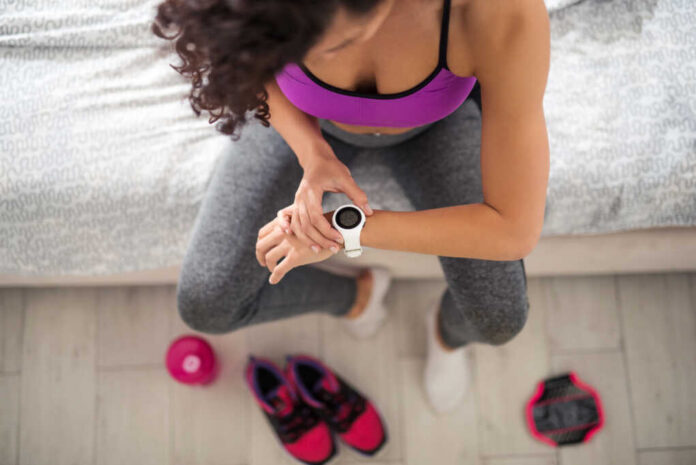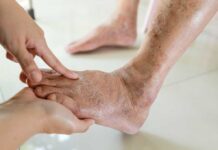
Exercise timing can significantly impact sleep quality, according to experts, with strategic workout scheduling potentially transforming your nightly rest and overall health.
At a Glance
- Exercise can improve sleep quality, but timing matters for optimal results
- Most adults require 7-9 hours of sleep, with consistent schedules being crucial
- Sleep deprivation increases injury risk and hinders fitness progress
- Strategic exercise timing can help overcome jet lag and regulate circadian rhythms
- Poor sleep habits can lead to serious health issues including hypertension, diabetes, and obesity
The Exercise-Sleep Connection
Regular physical activity is one of the most effective ways to improve sleep quality, creating a beneficial cycle where better sleep enhances exercise performance and vice versa. However, many people don’t realize that when you exercise can be just as important as the workout itself. Research indicates that physical activity raises body temperature and stimulates the nervous system, which may interfere with the body’s natural wind-down process if done too close to bedtime.
For most adults, morning or afternoon exercise proves optimal for sleep quality. This timing allows the stimulating effects of activity to dissipate before bedtime while still providing the sleep-enhancing benefits. However, individual responses vary—some people may sleep perfectly well after evening workouts, while others might experience disrupted sleep patterns from the same routine.
Understanding Sleep Debt
Many people operate under the misconception that they can “catch up” on missed sleep during weekends or days off. Unfortunately, research suggests this approach doesn’t work effectively. Sleep debt accumulates when you consistently get less sleep than your body requires, and weekend recovery sleep doesn’t fully reverse the metabolic disruptions caused by chronic sleep restriction.
The consequences of chronic sleep deprivation extend far beyond feeling tired. Research shows that insufficient sleep increases risks for serious health conditions including hypertension, diabetes, heart disease, and obesity. Additionally, sleep-deprived individuals often experience impaired cognitive function, reduced immune response, and decreased emotional regulation. For those who exercise regularly, the impact is particularly concerning—consistently getting less than seven hours of sleep can almost double your risk of training injuries.
Sleep Hygiene Fundamentals
Creating an environment conducive to quality sleep begins with your physical space. Sleep experts recommend investing in a comfortable mattress and bedding, blocking out light completely, minimizing noise disruptions, and maintaining a bedroom temperature between 65-68°F (18-20°C). These environmental factors can significantly impact your ability to fall asleep quickly and stay asleep throughout the night.
Consistent sleep and wake times represent another crucial component of good sleep hygiene. By maintaining regular bedtime and morning routines—even on weekends—you help regulate your body’s internal clock. This consistency reinforces your natural circadian rhythm, making it easier to fall asleep and wake up naturally. Additionally, limiting daytime naps to 20 minutes or less helps prevent interference with nighttime sleep while still providing restorative benefits.
Jet Lag and Exercise
Travelers frequently face disrupted sleep when crossing time zones, experiencing misalignment between internal body clocks and the local time at their destination. This phenomenon, known as jet lag, can significantly impact sleep quality and overall functioning. Strategic exercise timing offers one effective approach to minimizing jet lag’s effects and realigning circadian rhythms more quickly.
When traveling across time zones, exercise can serve as a powerful “zeitgeber” (time-giver) that helps reset your internal clock. Morning exercise with exposure to natural light proves particularly effective when traveling eastward, while afternoon activity may better address westward travel. However, for very short trips crossing fewer than two time zones, experts suggest maintaining your home schedule rather than attempting to adapt—by the time your body adjusts, you’ll likely be returning home.
Prioritizing Sleep for Health and Performance
While exercise timing matters, sleep quantity remains the foundation of good sleep health. Most adults require seven to nine hours of quality sleep nightly, though individual needs vary. When conflicts arise between early morning workouts and sufficient sleep, experts recommend prioritizing sleep first. This may mean adjusting workout schedules to accommodate proper rest rather than sacrificing sleep hours for exercise.
Sleep quality impacts nearly every aspect of athletic performance, from reaction times and accuracy to motor function, focus, motivation, and recovery. Proper sleep enhances glucose metabolism, memory consolidation, learning capacity, and stress regulation—all critical factors for physical performance and overall health. By understanding your individual sleep needs and structuring exercise timing accordingly, you can optimize both sleep quality and fitness results, creating a sustainable approach to long-term health and wellness.


















